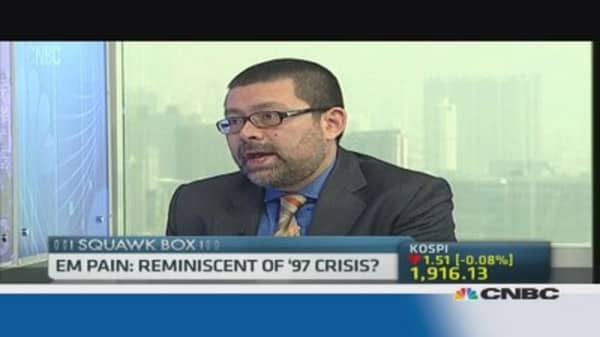As the sell-off in emerging markets intensified this week, India and Indonesia have been left the most severely bruised and battered. Now analysts are concerned of a domino effect that could spread to other emerging markets.
(Read More: Brutality scorecard: Which emerging stocks have it the worst?)
Richard Yetsenga, head of global markets research at Australia's ANZ bank, told CNBC that India's troubles represent a "great microcosm" for what is happening in emerging markets right now.
"India is a microcosm in the sense that nothing domestic occurred to trigger this latest move," he said. "India's current account deficit and budget deficit have been very wide for at least two years. It's only when U.S. bond yields really started going up and the free money tap turned off that it started to be manifested in the currency."
(Read more: What's really holding back growth in India)
Yetsenga said he expects India's fallout to be repeated across other emerging market economies, with those with high levels of external leverage being hit first, but then possibly spreading to other markets with high degrees of internal leverage.
"The cost of capital has gone up and that's causing issues everywhere. In that sense all of Asia is exposed to a higher global cost of capital," he noted.





